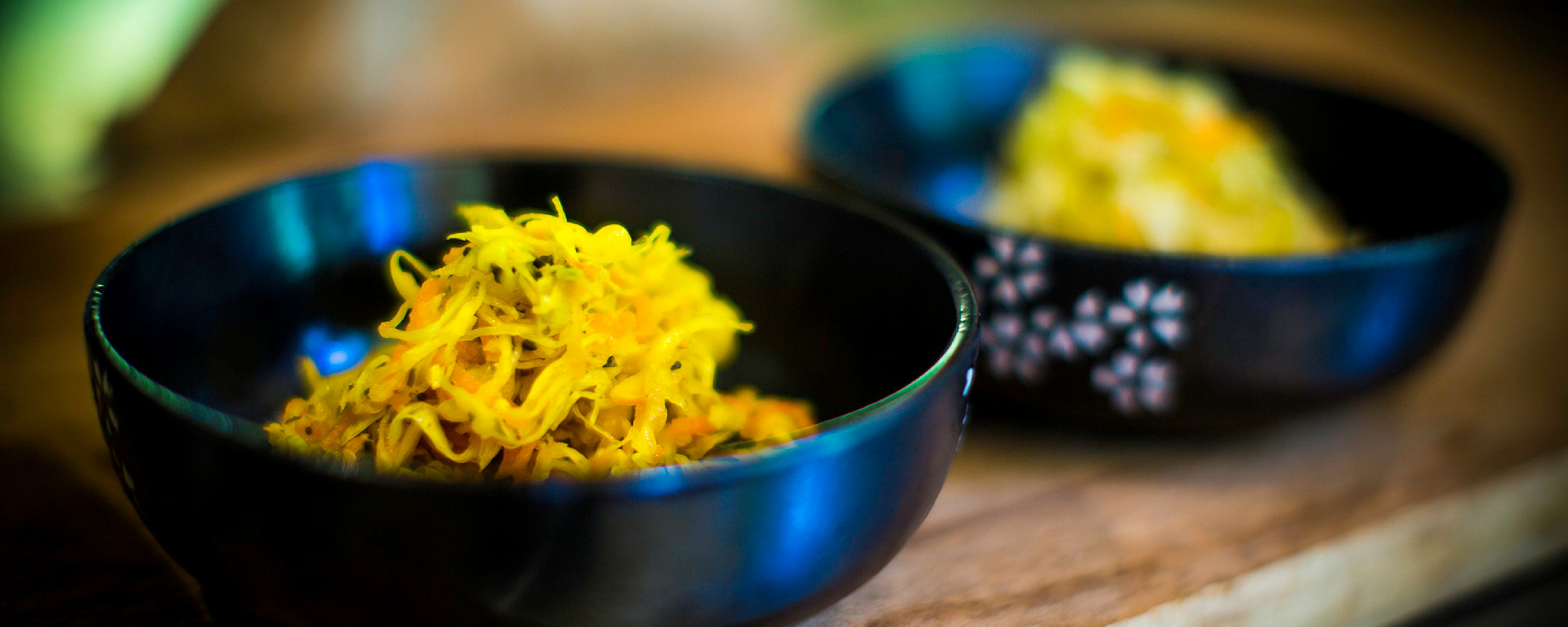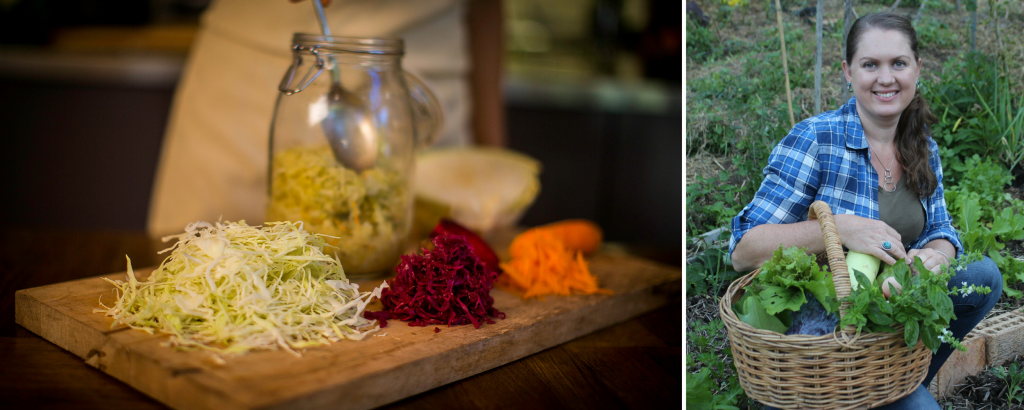01 Oct Discover The Wild World Of Fermentation
Discover the Wild World Of Fermentation // Saturday 14 & Sunday 15 November 2015 – Byron Bay
Are you open to experimenting with foods that have been proven to improve digestive health?
What are cultured, lacto-fermented & wild fermented foods?
I’ve read about fermented foods and their benefits, I’d love to learn how to make them for myself and my family.
Curious and willing to master the art of fermentation? Then the For Life Retreat November workshop might be just what you’re looking for! Discover the Wild World Of Fermentation this November in Byron Bay with Jean Martinez, For Life Retreats chef and workshop facilitator.
Over one weekend, Jean brings together her extensive knowledge in traditional foods and fermentation through an interactive and experiential workshop environment. Jean’s passion for fermentation and whole foods has seen her develop and teach at cooking schools around the globe. She now resides in Crystal Creek sharing her passion through her classes, courses and seminars under Artisan Wholefoods.
We were able to catch up with Jean and ask her about her relationship with fermented foods, ahead of our workshop this November.
Can you share with us how did you come across fermentation?
I came across fermentation through reading Sally Fallon’s book ‘Nourishing Traditions‘. Like many people of my generation I had no prior relationship with fermented foods and I had no idea what they were supposed to taste like! So when I started making my own ferments, I had to take a bit of a leap of faith in that I had done it right!
Tricky question but…. what are your favourite foods to ferment and why?
Choosing one category of favourite ferments is a real challenge!
The advantage of teaching classes is that I have to keep up a practice of many active ferments – which means that I usually have many to choose from. I do love vegetable ferments though – and experimenting with mixing flavours and textures.
And I’m a bit nuts about using seaweed at the moment. Kelp-kraut is delicious!
Can you share with us how probiotic rich foods have optimised your health?
Yeah sure….. I noticed early on when I began eating more fermented foods that I had a dramatic reduction in sugar cravings and a general improvement in my digestion. I believe that eating ferments has also made my digestion more robust and able to deal with surprises where once it would have been more sensitive.
What can everyone expect from your fermentation workshops ( without giving too much away)?
A bunch of practical take-home knowledge firstly. It’s absolutely critical to have a deep understanding of the fermentation process in my classes.
I can remember how daunting it was to trust that I wasn’t making food that could potentially make me ill – and this is a concern for many people that come to my classes too.
By explaining how natural and safe the process of fermentation is I hope to send students away with the confidence to experiment and play with new ferment recipes, letting their inspiration run wild.
The other part of the experience is tasting everything! I always bring loads of ferments to try so that students are able to have a sense memory of all the complex and delicious flavours that fermentation can bring.
Is it too cheeky to ask you for your top 5 fermentation tips?
No not at all – happy to share.
Firstly as I’ve mentioned, it’s important to understand the theory. This gives students the confidence that the ferment is safe and also the understanding when things go wrong.
2. Use the best quality in-season produce that you can find. You are what you eat – and supporting the soil and local farmers is as good for you as it is for the planet.
3. Make ferments that you actually like to eat. I realise that sound simple – but as I often suggest to people it can be disheartening to make something that you think you should eat, only to put it in the back of the fridge and then feel guilty about it. You will only get the benefit if you love to eat what you are fermenting.
4. Making lots of new ferments can be overwhelming, so it is good to just start with a couple of things while you get the hang of it – like sauerkraut and kvass, or water kefir and lacto-fermented cucumbers.
5. Experiment. Lacto-fermentation recipes are there to give you guidance. Let your creativity guide you as well as what is in season, what you can source locally and what you love to eat.
At For Life Retreats we warmly embrace Sally’s Fallon’s Weston A Price’s views on diet and nutrition as well as Natasha Campbell McBride’s GAPS protocol. Come along to one of our November workshops to learn more.
We highly recommend you do your own research on Sally Fallon and check out the Weston A Price and the GAPS Protocol.







No Comments